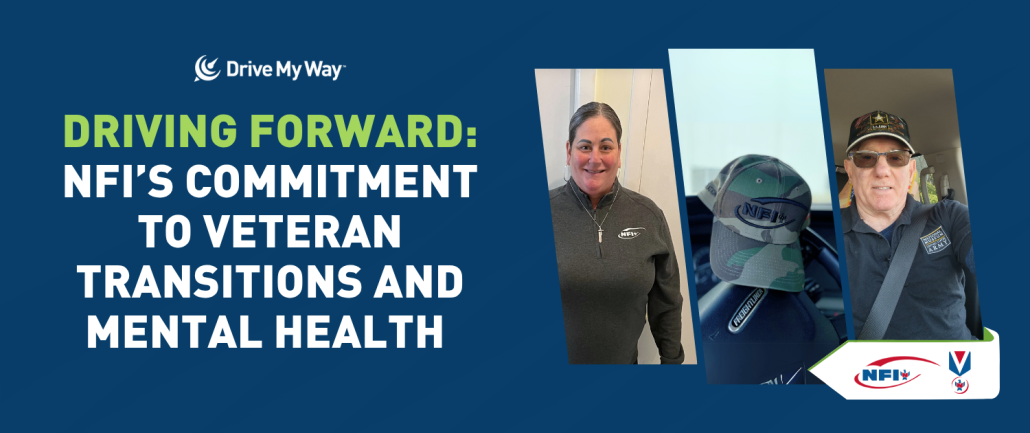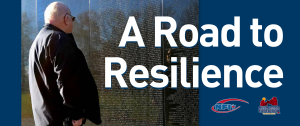
For many military veterans across the nation, the transition to civilian life brings both opportunity and uncertainty.
While veterans often return home with strong discipline, sharp problem-solving skills, and experience operating in high-pressure environments, finding the right career fit, and a supportive community that understands the unique challenges they may face, can still be difficult.
That’s why companies like NFI Industries are leading the way in helping veterans make this shift successfully, with a strong focus on mental health, community support, and creating meaningful career pathways in the commercial driving industry.
Turning Military Experience into Career Strength
Veterans bring a wealth of valuable experience to the civilian workforce. When it comes to trucking, skills developed in the military, like operating specialized vehicles, working under pressure, and adhering to strict safety protocols, translate directly to success behind the wheel and in logistics roles.
“Military training and experiences can significantly enhance resilience and problem-solving abilities, which are valuable assets when facing challenges in various aspects of life, including academic success, professional development, and personal growth,” said Michelle A., an NFI Recruiting Coordinator and U.S. Marine Veteran.
At NFI, veterans are welcomed into a culture that understands and respects these skills. Whether it’s a position as a driver, technician, or in a management role, the company works to ensure veterans are not only hired but also set up to thrive.
When asked how NFI creates an inclusive environment for veterans, Michelle explained that they “create veteran-specific ERGs, offer mentoring programs, provide flexible work arrangements, and ensure inclusive onboarding. NFI also provides a clear onboarding process that includes veterans’ unique needs and experiences, as well as access to mental health resources and support services. NFI really understands the challenges veterans face.”
Supporting Mental Health and Wellbeing
The shift from military to civilian life can also come with unseen hurdles. Many veterans face mental health challenges, including post-traumatic stress disorder (PTSD), depression, or anxiety. Navigating these concerns while adjusting to a new job and lifestyle can be overwhelming.
“May being the Military Appreciation Month for the fallen veterans is heavy with me,” said David J., an NFI truck driver and U.S. Army Veteran. “Thinking of all who died so we can enjoy the life we have helps me to both reflect on their sacrifice and do my best to be the best example for others. Those who made the ultimate sacrifice for us, being remembered, gives me strength to be the best I can be.”
Support from employers can make a real difference. Veterans entering the field should look for companies that recognize the mental health needs of veterans and provide the tools to help them succeed. At NFI, this includes counseling referrals, peer support networks, and creating a workplace culture where mental health conversations are welcomed, not stigmatized.
Building a Community for Veterans
One of the most impactful ways companies can support veterans is by fostering connection and a sense of community, especially in an industry like trucking, where the work can often feel isolating.
Programs like NFI’s VET Employee Resource Group (ERG) highlight how organizations can bring together veterans and allies across the company, providing a platform for peer support, advocacy, and camaraderie.
Through the VET ERG, veterans at NFI engage in events, volunteer initiatives, and mentorship opportunities that help them feel seen, supported, and empowered. These programs not only honor their service but also give them the tools to succeed in a new industry. David J. shared that the ERG is “very well designed,” offering nearly everything veterans need to thrive. He also emphasized the importance of support and recognition, noting that it helps veterans maintain a positive mental attitude while managing the unique challenges they face transitioning into civilian roles.
NFI’s commitment is further demonstrated through V.A.L.O.R. (Veteran Advocacy for Leadership, Opportunities, and Resources), which unifies all military initiatives under one banner and underscores NFI’s dedication to supporting and retaining veterans. By increasing brand awareness as a veteran-preferred employer and strengthening internal and external communication, V.A.L.O.R. fosters a deeper sense of camaraderie among veteran employees in both the U.S. and Canada.
In addition, NFI’s Military Apprenticeship Program offers structured, hands-on training tailored to veterans transitioning into trucking careers. This program allows participants to gain valuable experience, earn income, and learn from seasoned professionals in a supportive environment. By combining mentorship with a clear path for advancement, NFI helps veterans navigate the shift to civilian employment with greater confidence and long-term stability.
A Commitment That Runs Deep
NFI’s commitment to veterans goes beyond hiring and training. It’s a deeply embedded part of their culture. By creating clear career pathways, offering mental health support, and building inclusive environments, NFI is focused on helping veterans do more than just find a job. They’re helping them find purpose, community, and long-term success in civilian life.
“The trucking industry is increasingly addressing the mental health needs of veteran drivers by offering confidential counseling, telehealth services, and promoting a culture of support,” said Michelle. “However, more needs to be done, including expanding access to mental health resources, reducing stigma, and educating both drivers and industry leaders on the importance of mental well-being.”
For veterans looking for a career in trucking or logistics, companies like NFI Industries are proving that the road ahead can be both rewarding and supportive.



